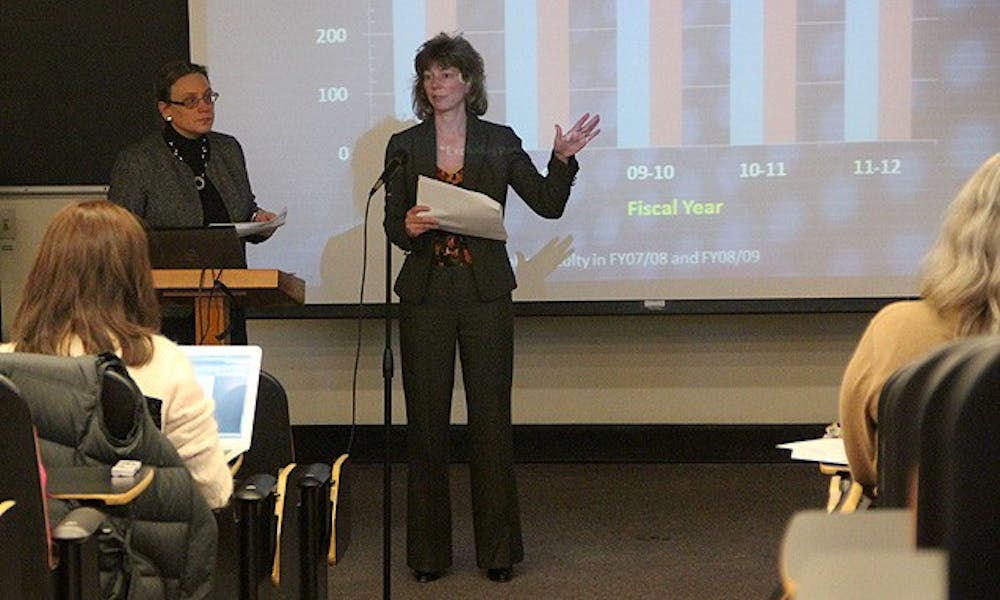The Arts and Sciences Council voted to conduct its first evaluation of the Areas of Knowledge requirements at its meeting Thursday.
This evaluation represents the first formal review since the requirements were instated for the Trinity College of Arts & Sciences in Curriculum 2000 and again adapted in 2004. The logistics concerning who will conduct the review and what data will be collected will be determined by the council’s executive committee, committee chairs and other relevant stakeholders, said Council Chair Ruth Day, associate professor of psychology.
Day added that in the past, administrators have not taken into account what students think they should get out of required courses, which poses an issue for the current Areas of Knowledge model.
“In general, colleges tend to be weakest in the structuring of the general education requirements,” Dean of Arts and Sciences Laurie Patton said. “Assessment, in the past, has been understood to be a ‘make-work’ problem.”
Ingeborg Walther, associate dean of Trinity College and director of the Office of Curriculum and Course Development, noted that the council must be mindful of the student perspective, including how students regard the requirements. As the system currently stands, students are not actively considering how certain Areas of Knowledge courses fit into their entire academic experience at Duke, she added.
“The mere form of the matrix is creating a situation where students choose courses purely based on what codes the courses are associated with,” Walther said.
Senior Kaveh Danesh, Duke Student Government vice president for academic affairs, said that the evaluation should address students’ concern of the unequal distribution of codes across disciplines.
Day said the initiative to re-examine the current system would differ from the review of the Quantitative Sciences requirement, which solely concerns the QS requirement. Day added that the QS proposal could serve as an initial step to evaluating the Areas of Knowledge requirements in their entirety.
“It [would be] a fact-finding mission to determine student course-taking patterns, course code assignments and related trends,” Day said.
She noted that if results suggest that problems do not exist, additional actions would not be taken and the review would end.
In other business:
Patton discussed the results of a faculty poll on budget solutions, stressing the importance of not reducing funding for undergraduate student research.
“[The responses] were incredibly helpful as we look forward and will help administrators respond quickly to faculty’s concerns,” Patton said.
Administrators have been able to avoid cutting student funds by providing resources through the arts and sciences budget when funds from the Duke Endowment end and by drawing on external support from Howard Hughes and Mellon Mays grants, she said.
“I don’t know of any other university where faculty and administration have worked so closely together and especially during the budget crunch,” Day said. “In response to the economic crisis, Duke took a step in the other direction by giving faculty the leadership and ability to act upon what they believe in.”
The poll gathered responses from 54 percent of the Trinity faculty.
Get The Chronicle straight to your inbox
Signup for our weekly newsletter. Cancel at any time.

